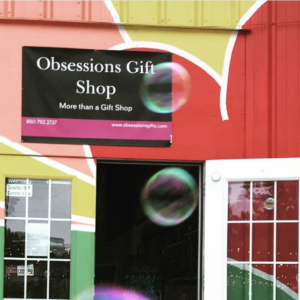
Since the 1860s, before the abolition of slavery, Black people have owned and operated successful businesses, thriving in industries such as food, clothing and beauty.
Although there are, and have been, successful Black-owned businesses, there is a shortage of them nonetheless. According to marketplace.org, “Black people are almost 13% of the U.S. population, but only 4% of business owners.”
With the economy in a recession due to the coronavirus pandemic, Black-owned businesses have taken the biggest hit.
Haggai Construction and Development, Inc., a Black-owned construction company based in Tallahassee, has suffered some financial loss since the pandemic started.
“What I do requires inspections –- from the authority having jurisdiction, whether it’s city or county, or whomever –- they’ve effectively halted inspections,” company owner, Kenneth Taite, said. “I get paid based on the scope of work performed and the inspections; if I can’t get the inspections, I can’t get paid and that’s been very problematic for me.”
Inspired by his mother, Taite started his construction company in 2003 after receiving a bachelor’s degree in architecture from Florida A&M University and a master’s degree in building construction and design at the University of Florida.
“I’ve always wanted to be in the design and construction industry, it’s probably in my DNA,” Taite said. “My mother wanted to be an architect, [so] she went to Tuskegee [University], but she knew that women couldn’t be architects and the program wouldn’t let her in.”
Despite these struggles, Taite’s company has managed to stay in business doing work in commercial real estate.
Another localBlack-owned business that has been affected by the pandemic is Obsessions Gift Shop (See https://www.loc8nearme.com/florida/tallahassee/obsessions-gift-shop/5821094/). Obsessions is a mother-daughter owned gift shop that sells handmade and handcrafted items from other local businesses.
“My daughter [Nijah] and I started Obsessions Gift Shop back in 2017. So, I quit my [state] job because my daughter was about to graduate high school and I wanted to spend more time with her,” co-owner of the shop and mother, Betty Proctor, said. “She’s on the autism spectrum and I wanted to make sure that transition [from high school] was easy for her, and also have something, financially, for her to fall back on.”
Since its debut in 2017, Obsessions has been thriving and now that the pandemic is surging, business has definitely slowed down.
“Covid has definitely decreased the number of customers that could’ve been coming,” Proctor said. “What I have had to do was pivot. So a lot of the small businesses that you see are trying to pivot to something else; they try to pivot their business to meet the needs of the customers, so I pivoted to [selling] face masks.”
The Proctors’ decision to sell face masks has kept their business afloat with additional help from the CARES Act and a small business loan from Tallahassee.
In addition to Haggai Construction and Obsessions Gift Shop, Cherry Blossom Intimates has also experienced a slow down in business.
Cherry Blossom Intimates is a Black-owned Maryland-based breast health facility and intimates boutique whose mission is to change what post-mastectomy shopping looks like and feels like by using intimates and innovation to foster inclusion across the globe, according to its website.
The business was started in October 2018 by surgeon Dr. Regina Hampton and her business partner, Jasmine Jones, to educate and cater to women of color after they have had breast surgery.
“When we first opened, the community really embraced us,” Hampton said.
Once the pandemic hit, their retail revenue went down, but they still managed to get business.
“One thing about us, we have a dual revenue stream; we have the retail portion… but then, the mastectomy part, those items are paid for by medical insurance, so we always have the potential to have revenue coming in,” Hampton explained. “What’s not coming in on the retail side can come in on the insurance side.”
These three businesses are among a handful of Black-owned businesses that have been affected by the pandemic. All three of the business owners plan to find more traction in the coming months and they all agree that it’s important to support Black businesses, especially in this climate.